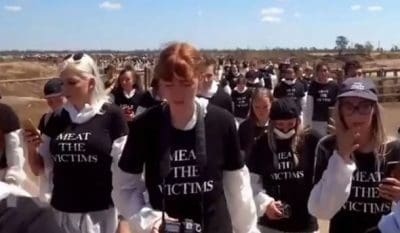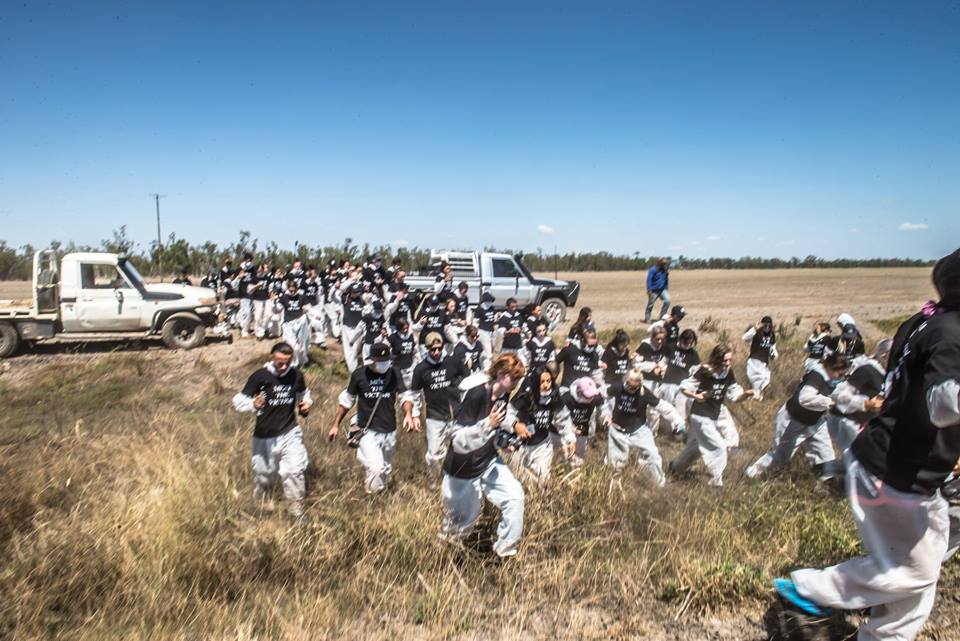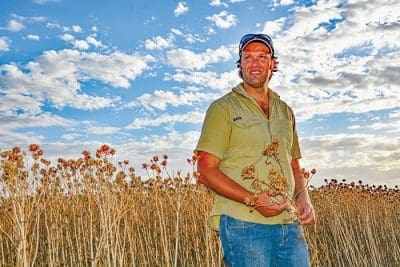New legislation which would introduce jail sentences for people who incite farm invasion and harassment was passed by the House of Representatives earlier this month.
The Criminal Code Amendment (Agricultural Protection) Bill 2019 is now before the Upper House. Earlier this week Senators from the Legal and Constitutional Affairs Legislation Committee questioned a range of stakeholders about its potential implications. The committee is due to hand down the report from its inquiry by Friday September 6.
If passed by the Senate the Bill will introduce two offences:
- One where a person uses a carriage service to transmit, make available, publish or otherwise distribute material with the intent to incite another person to trespass on agricultural land. This offence would require that the person is reckless as to whether the other person’s trespass or related conduct could cause detriment to a primary production business being carried on on the land. A person found guilty of this offence could face up to 12 months’ imprisonment.
- Another where a person uses a carriage service to transmit, make available, publish or otherwise distribute material with the intent to incite another person to unlawfully damage or destroy property, or commit theft, on agricultural land. A person found guilty of this offence could face up to five years’ imprisonment, to reflect the more serious nature of the incited conduct.
‘Agricultural land’ under the bill would cover farming businesses including intensive operations such as chicken farms and piggeries, as well as businesses operating an abattoir or an animal saleyard.
The Bill also contains exemptions for journalists and those who are making lawful disclosures of information, including whistle-blowers. Under the exemption for journalists, the offences would not apply to material relating to a news report or current affairs report which is in the public interest and is made by a person working in a professional capacity as a journalist.
“The people who produce the food that feeds us have a right to feel safe in their businesses and their homes without the threat of activists’ invasions,” Deputy Prime Minister and Leader of the Nationals, Michael McCormack, said when the Bill passed the lower house on August 1.
In eight hours of hearings on Monday senators grilled almost 40 witnesses ranging from farm representatives to animal activists and legal experts.
Some of the central messages to emerge from the evidence provided included:
Mass invasions are creating genuine fear among farmers
Victorian Farmers Federation president David Jochinke, a third-generation grain farmer from the Wimmera, told the inquiry many farmers were now living in fear. Farms were not only a place of work but also a home, and suitable deterrents were needed to prevent future invasions.
 “Many of my members feel persecuted. If our members were a race, creed or colour and had data or evidence put up of their businesses or their places of residence, there would be public outcry,” he said.
“Many of my members feel persecuted. If our members were a race, creed or colour and had data or evidence put up of their businesses or their places of residence, there would be public outcry,” he said.
“Agriculture has been, in the past, an easy target—something that hasn’t been protected, something that hasn’t been upheld— and we’re at a breaking point.”
Mr Jochinke said farmers were open to having dialogue, but in a fair and respectful manner, not in a private and uninvited way.
National Farmers Federation CEO Tony Mahar said the recent surge in antifarming rhetoric and trespass “peddled by a small but loud group of activists” came at a time when Australian farmers were already being stretched to capacity by natural weather events and the increased cost of stock feed and water.
Activists had a simple but extreme agenda, he said: the end of animal agriculture.
“NFF strongly supports the right of individuals to protest and express their views in a lawful way, and also in a respectful way. This right should not be compromised, nor, however, should the right of a farmer to conduct their lawful business without the threat of disruption and harassment by trespassers,” Mr Mahar said.
“Unfortunately, our legal framework is not providing sufficient deterrent, and trespass attacks are on the rise.”
Mr Maher said the fact that no one had been charged under the existing provisions of the Commonwealth Criminal Code showed existing laws were inadequate. Mr Jochinke said the existing trespass laws were no longer adequate because “technology has moved on”.
NSW pork producer and chair of the New South Wales Farmers’ Pork Committee Ean Pollard described the personal impact of experiencing a middle-of-the-night property raid by activists, and the ongoing consequences which had lasted well beyond the initial raid itself.
Law abiding farmers expect Govt to protect them from illegal activity
“What we really want is a strong government to oversee these procedures and processes,” VFF president David Jochinke said, “to ensure that private information is exactly that; to ensure that when people are conducting businesses lawfully they are also protected; and, especially, in regional areas, where employment, confidence and the community are understood, to ensure that when people make efforts to disrupt that, when we see other forces spreading what are not necessarily truths—and they’re becoming more prevalent within the community—there is some protection, some backstop to make sure that the livelihoods of farmers and the livelihoods of rural communities are taken seriously.
“Unfortunately, we’re at the stage now where common courtesy is no longer the ruling force.
“We need something stronger, something that will send a message to make sure that farmers are protected and that these communities are heard, but more so that we actually have a rule of justice.”
NFF CEO Tony Mahar said the NFF believed the changes in the bill would help to deter individuals and organisations actively encouraging others to engage in illegal conduct.
“We believe the passage of this bill will send a strong message to farmers that the government understands how serious this issue is and is prepared to act,” he said.
“Our farmers should not have to live with the threat that their homes, properties and businesses will be invaded by extreme activists who are philosophically opposed to animal farming.”
The full story is here
https://www.beefcentral.com/news/eight-messages-from-senator-grilling-of-new-farm-protection-laws/?utm_medium=email&utm_campaign=Beef%20Central%20News%20Headlines%20August%2016%202019&utm_content=Beef%20Central%20News%20Headlines%20August%2016%202019+CID_8bdb3e6cc13cd82e1ffcc54105b695eb&utm_source=eGenerator&utm_term=Click%20here%20for%20full%20story









